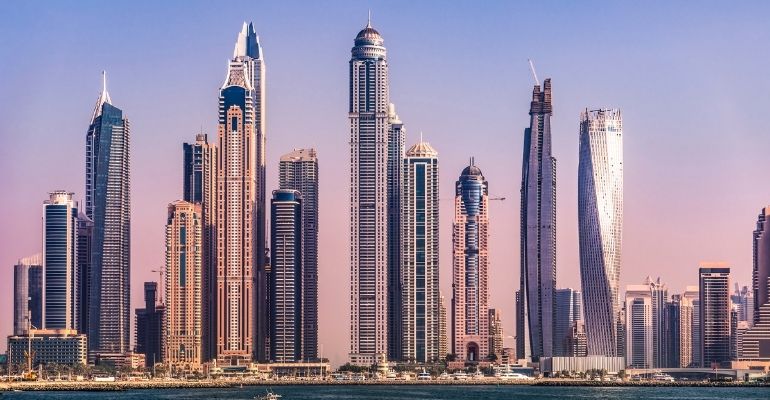Typically, the real estate market is cyclical – property values move up and down, sometimes even like a roller coaster ride with peaks and troughs; with shooting stars of housing booms (and busts). We have seen that the property market cycle has three well-recognised recurring phases of boom, slump, and recovery.
Thoughtful investors look for a market offering some stability, good growth potential and a promising economic outlook. I believe the United Arab Emirates tick all these boxes, showing all the signs of being in a boom cycle. The local property market has matured into a regulated, internationally respected environment, with best practice legislation in place to protect buyers, sellers and developers. To facilitate smooth real estate transactions, the UAE offers a variety of corporate setups and visa options for potential domestic and international investors.
Anyone providing sufficient personal funds can buy property in Dubai – however only UAE residents can apply for a mortgage (mandatorily with a local bank) to finance a real estate transaction. In fact, there is no visa requirement to live or work in the Emirate in order to acquire property. From a foreign investment perspective, properties referred to as “freehold” in Dubai are those located in “designated areas” in which non-nationals are allowed to own an absolute interest.
DUBAI'S MOST POPULAR AREAS
The owner of such a property enjoys free indefinite ownership and can use the property for any purpose (in accordance with the local regulations). There are currently more than 60 freehold areas across the city-state. Among the most searched areas are Dubai Marina, Business Bay, Jumeirah Lake Towers, Downtown Dubai and La Mer.
As HE Sultan Butti bin Mejren, Director-General of Dubai Land Department (DLD) told delegates at a recent event in Dubai: “The performance of Dubai's real estate market during COVID-19 affirmed its maturity and solid position and proved its readiness and resilience in the face of global crises, thanks to the directives and initiatives of the wise leadership.”
The UAE property market has become a strong domestic market. It doesn’t rely on international investors. While it certainly welcomes them, it has survived, thrived and recently even broken records thanks mainly to local transactions. But we are now seeing increasing international interest, with the UAE’s handling of COVID-19 supporting post-lockdown demand from buyers drawn by visa reforms, the emirate’s quality of life and comparatively attractive pricing.
At the time of writing, figures from Property Finder research, reveal that 2021 H1 saw a total of 31,757 sales transactions in the UAE worth AED73.15 billion. In just the first seven months of 2021, the value of real estate sales transactions has surpassed 2020 as a whole. Last year, the real estate market saw 35,401 sales worth AED71.87 billion.
Leading international real estate firm Chestertons, reporting on Q2 2021, said total transaction value in Dubai saw a near 50% rise quarter-on-quarter , topping AED31 billion, up from AED 20.77 billion the previous quarter.

EXPO 2020
With Expo 2020 Dubai just around the corner, the property market is further set to grow - not only in the residential property sector, but with interest in buying, renting and leasing office space seeing a noticeable upswing.
In short, Dubai and the UAE are seeing a boom cycle that looks set to extend well into 2022 and 2023.
This clear improvement in market sentiment has seen more UAE residents keen to purchase ahead of anticipated property price rises, alongside favourable mortgage rates and generous developer incentives.
PURCHASING PROPERTY IN THE UAE
In the UAE, real estate can either be purchased individually or through certain corporate structures. Free zone companies and structures allow 100% company *and* property ownership. While there may be numerous complexities here, many of the free zones have agreements in place with the relevant UAE government land departments, and our experts can help you avoid the regulatory pitfalls.
Investors keen to gain a foothold in Dubai and the UAE’s lucrative property market can take advantage of a range of different property linked visas, a new and growing sector of the country’s residency laws.
In short, options range from a six-month multiple entry visa to allow potential residents to complete paperwork and applications for other visa types, to three- and five-year residency visas depending on the property investment value. The 10-year residency ‘Golden Visa’ is issued on the basis of an AED10m investment, AED4m of which must be in real estate. Such property-related visas do not, however, allow the visa holder to work in the UAE.
EXPAND YOUR REAL ESTATE KNOWLEDGE
Subscribe to the Cityscape Intelligence newsletter here

